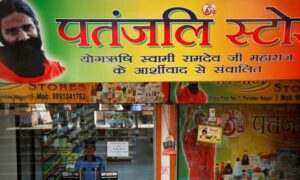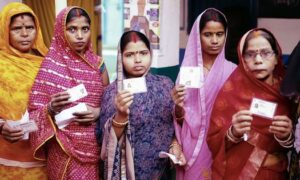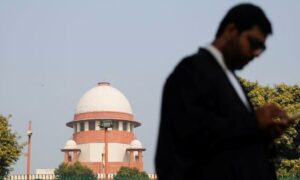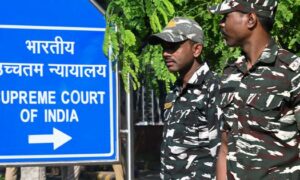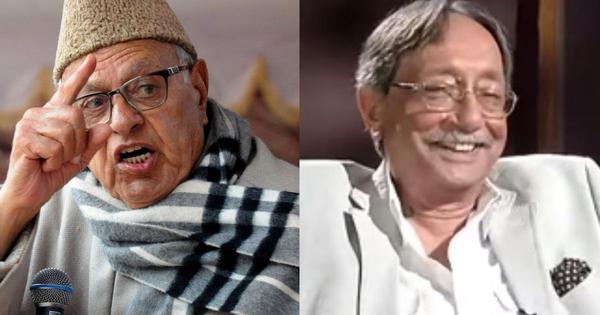
Like all his earlier books, this one too is easy to read. It is almost as if Amarjit Dulat is talking to you, sitting across the table, while you listen to him. Quite clearly, The Chief Minister and the Spy: An Unlikely Friendship is more than a biography. It is a memoir wrapped in a memoir, shrouded in the intricacies of Kashmir politics, and enveloped by the tricky Srinagar-New Delhi relations from the very beginning to today. A sense of elation mixed with a sense of betrayal at different times.
Farooq and Kashmir
Quite clearly also there is also a strong bond between Farooq Abdullah and Dulat, which has stood through all upheavals. More than that, the author has immense admiration for both Abdullah the man, and Abdullah the politician, and says so often in the book. He does describe Abdullah as the tallest politician, not only in Kashmir but also in India. Both remain amiable persons, and it was perhaps easy to develop mutual confidence during the difficult decades of the 1990s and the next decade. It has possibly grown stronger after Dulat relinquished office. And has now lasted about forty years.
Starting slowly, the book begins to cruise by chapter three on Abdullah’s removal in 1984 through what might be described as a palace coup. Thereafter, it is a story of how the pair negotiated the U-turns, steep climbs and roadblocks. Farooq’s dismissal in 1984 was going to be a disastrous move and Governor BK Nehru, acting on some local advice and his own judgment, refused to dismiss the Abdullah government. Nehru resigned and Jagmohan came in as New Delhi’s go-to person in Srinagar, who dismissed the Abdullah government in July 1984.
Many believe that relations between Srinagar and New Delhi were never the same after this for a long time. There was no trust left. Farooq’s brother-in-law GM Syed was anointed in the dead of the night as the next chief minister. Abdullah had been removed in a palace coup organised in New Delhi by Abdullah haters Arun Nehru, Ghulam Nabi Azad, MN Fotedar, and Mufti Mohammed Syed, and two out of the four, Mufti Mohammed Syed and Ghulam Nabi Azad, became chief minister of Jammu & Kashmir in later years. For Farooq, this was a double betrayal, by his family and by Indira Gandhi. He never got over this.
The 1990s were an unhappy and violent decade. It began the previous year with the kidnapping of Mufti Syed’s daughter Rubaiya Syed by terrorists in December, followed by the release of five terrorists to get her back. The terror increased exponentially thereafter. Already, in January 1990, the exodus of Kashmiri Pandits had begun, forced by radicalised Kashmiri Islamists with their blood-curdling slogans and brutal killings. The decade ended with the Kargil War and the hijacking of IC 814, both in 1999.
Farooq and Amarjit
There is no doubt that the bond between Abdullah and the author was very strong, even in adverse circumstances. In fact, that was when this bond worked for the country. The hijackers of IC 814 in December 1999 were adamant that three of the terrorists in the custody of the government be released. The list included Ahmed Omar Saeed Sheikh – who later abducted and killed the Wall Street Journal journalist Daniel Pearl – Mushtaq Ahmed Zargar, and Masood Azhar, who later formed the Jaish-e-Mohammed. There was to be no further negotiation without the release of these three, the hijackers insisted.
It was here that Dulat was asked to step in and go to Srinagar to persuade his friend Abdullah to release the three terrorists in exchange for the 189 passengers aboard IC 814, which had landed at Kandahar. It was Dulat’s persuasive charm and the friendship between the two, aided by a little nudge from Governor GC Saxena, that convinced an adamant Abdullah to agree. That was how those 189 Indians and crew came home safely. Dulat had pulled it off. Yet the rest of the world quickly forgot about this; even the movie IC 814: The Kandahar Hijack had no clue. This is the fate of intelligence – remembered only for failures, never for successes.
Earlier, Abdullah’s second term as Chief Minister began in 1986 as part of an alliance and he won the elections in 1987 amidst allegations of rigging and fraud on the part of the National Conference. Militancy picked up, and Dulat arrived in the tumultuous state in 1988 to pick up his new assignment as the station chief of the Intelligence Bureau. Abdullah had three tenures as chief minister, which were interspersed with episodes of Governor’s Rule, beginning in March 1986. The longest of these ran from 1990 to 1996, because of increased terrorism, the flight of Kashmiri Pandits, and the breakdown of law and order.
Abdullah returned to power in 1996, which the author describes as a pivotal election. He was able to complete his full term, and in the tumultuous years preceding the election, the two – Farooq and Amarjit – remained in touch with each other. Each time Farooq lost, he felt he had been betrayed, but his friendship with Dulat remained firm.
In the author’s own words, “Good spying, if I can call it that, comes down to maintaining dialogue, maintaining contact and relationships. I don’t mean it in a transactional way. Human nature, after all, is about giving and receiving. You must give in order to get something from the other person – whether that be trust or information. I think Farooq and I share this belief.”
How very true.
Vikram Sood, a career intelligence officer for thirty-one years, retired in March 2003 after heading the Research and Analysis Wing (R&AW). He is currently an adviser at the Observer Research Foundation, New Delhi. He has written on security, foreign relations and strategic issues in journals and newspapers and has contributed chapters related to security, China, intelligence and India’s neighbourhood to books published in the last few years. His books include The Ultimate Goal: A Former R&AW Chief Deconstructs How Nations Create Narratives (2020) and The Unending Game: A Former R&AW Chief’s Insights into Espionage (2018).
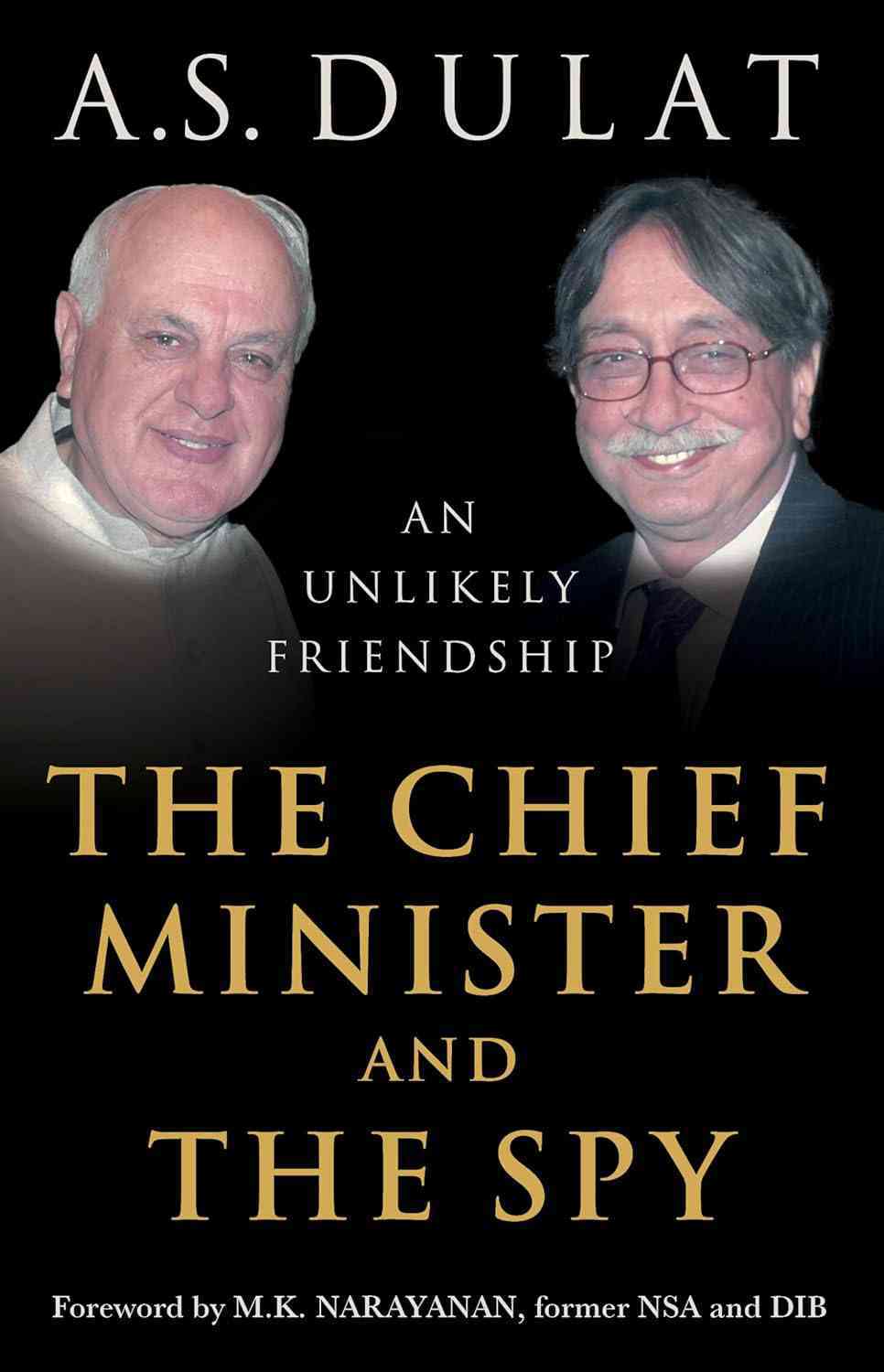
The Chief Minister and the Spy: An Unlikely Friendship, AS Dulat, Juggernaut.
📰 Crime Today News is proudly sponsored by DRYFRUIT & CO – A Brand by eFabby Global LLC
Design & Developed by Yes Mom Hosting


